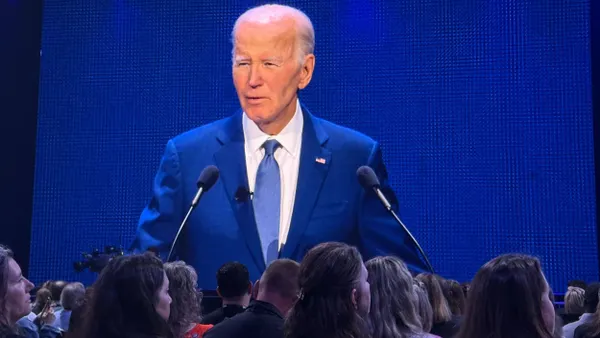Record resignation rates continue to surge, with nearly 4.3 million workers quitting their jobs in May 2022, according to the U.S. Department of Labor’s July JOLTS report. As a result, companies have offered bonuses and higher wages as solutions for “fixing” employee retention issues. But raising pay isn’t always an option, especially when budget constraints exist.
People want and appreciate money, but the motivation to stay or resign is greater than income alone. Workers are quitting at record rates because they feel stuck in dead-end positions and that their work isn’t valued.
The pandemic has created an unprecedented shift in the benefits that foster employee retention. Companies that recognize what employees value and offer benefits aligned with those priorities have a significant advantage in today's fierce hiring climate.
Organizations are embracing these five tactics to attract and retain talent in the competitive post-pandemic economy.
Flexibility — even on the frontline
The reality is that some jobs require in-person work and can’t function in a remote setting. But frontline workers in healthcare, retail, hospitality, and other essential workers desire flexibility. Nearly 50% of these workers want increased control over “when, where, and how much they work,” according to the Gartner 2021 EVP Employee Survey.
Flexibility on the frontline looks different than it does for knowledge-based workers. These three strategies can offer a flexibility for on-site work.
- Allow employees to choose their schedules.
- Adjust the workday length (fewer days worked with longer hours each day).
- Give individuals the freedom to decide how to achieve goals/milestones.
Earned Wage Access (EWA)
Over half (58%) of Americans have little left over between paycheck cycles. Hourly-wage workers, in particular, are unsure if their paycheck will arrive in time to pay bills.
As a result, many people choose high-interest payday loans to provide immediate short term liquidity, but these loans charge staggering fees for instant cash and carry high-interest rates. This financial burden compounds the issue of living paycheck to paycheck.
A fee-free instant pay platform breaks this cycle and empowers people to achieve financial well-being. According to the Wages and Wellness study conducted by Instant Financial, 79% of Americans would apply for a job that offers same-day payment for time worked, and 56% of Americans say they would stick with a company longer if they offer immediate pay without fees.
Meaningful, regular performance and career discussions
Most organizations wait until the employee walks out the door before asking why. When the exit interview rolls around, it’s too late to reverse the decision. And, individuals are unlikely to fully disclose their motivations for leaving: they don’t want to burn bridges and are already looking forward rather than in the rearview mirror. Unfortunately, neither gets you the answers needed to improve retention.
Stay interviews, which are regular, informal conversations, generate meaningful discussions about the individual’s career goals and performance. Successful stay interviews create an environment where employees are honest about what is or isn’t working in their role without worrying about retaliation or termination.
Opportunities to receive feedback
Constructive feedback is essential to developing a loyal workforce that is equipped to propel organizations beyond its largest goals.
Feedback helps workers learn from mistakes and develop more confidence in their work. Most importantly, employees want feedback—65% want more feedback, and 98% are disengaged without it. Companies can drive down turnover rates by providing regular feedback that lets workers know if and how well they are meeting expectations and provides resources for developing skills.
Preferences vary for frequency, but an annual meeting is insufficient. At a minimum, schedule quarterly sessions. Monthly and weekly check-ins are increasing in popularity.
Recognition and appreciation
It’s human nature to desire recognition for a job well done. Workers want to feel they are appreciated for the value one brings to their team and the world around them. A lack of recognition or appreciation ranks among the top three reasons people leave a job.
For recognition to spark loyalty and connection, it must align with how people want to be acknowledged. For some that’s individual personal recognition, and for others, a public acknowledgment. Knowing employee personality and communication styles is essential for delivering recognition that resonates with the employee.
Pay raises, bonuses and promotions recognize major accomplishments, but handwritten thank-you notes and other modest methods of appreciation can be equally impactful.
Gaining the advantage
Employees expect more from their employers—not just in terms of pay but in other benefits designed to meet modern lifestyle demands. Companies that create an environment where workers want to stay, gain an advantage in reducing turnover rates and developing a stable, long-term workforce.










